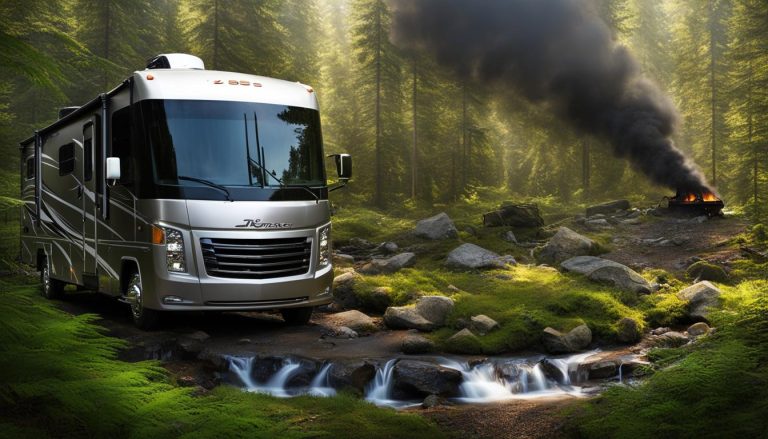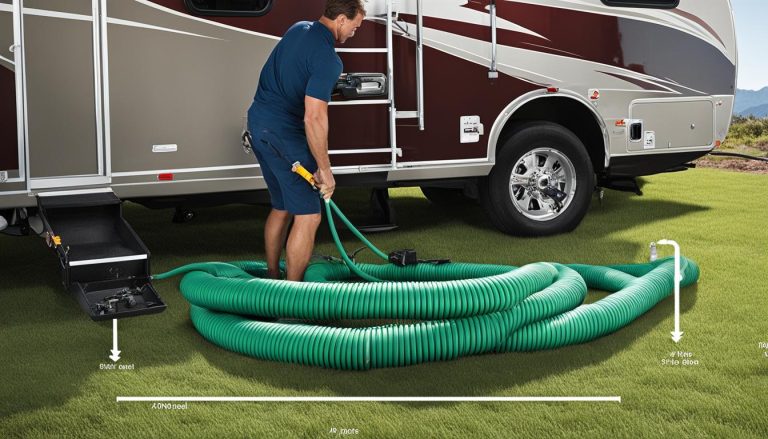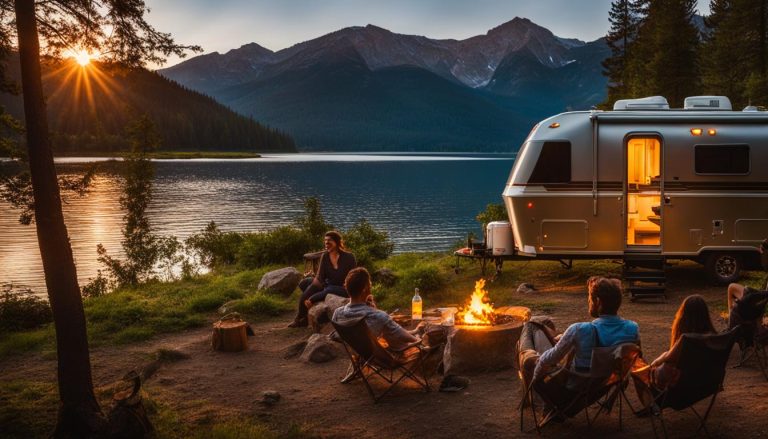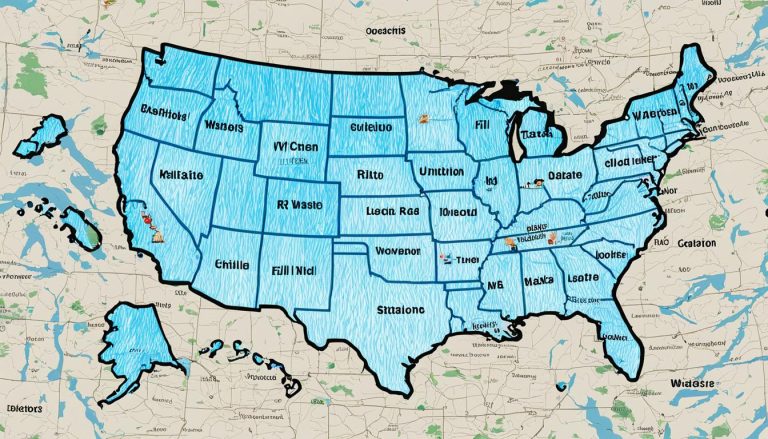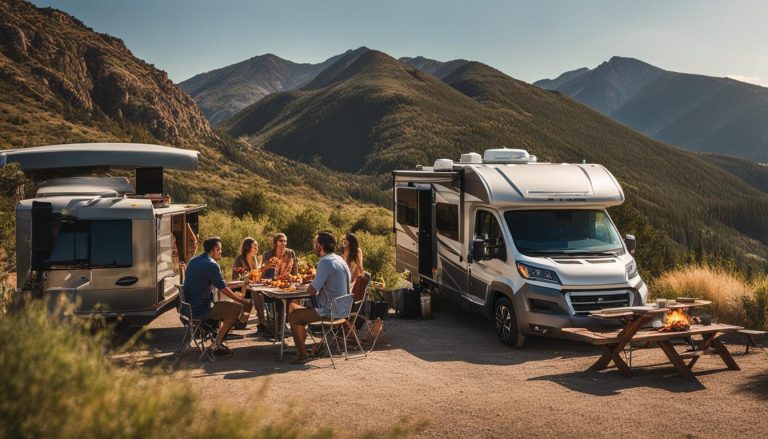RV Refrigerator Repair Guide – Fix It Yourself!
gorvlifestyle.com and its partners may earn a commission if you purchase a product through one of our links
If you own an RV, you know how crucial it is to have a functional refrigerator during your travels. However, RV refrigerators can encounter issues such as not cooling properly, not working on gas or electric, or producing a strong ammonia odor. Instead of panicking and spending a fortune on repair bills, why not try fixing it yourself?
In this comprehensive guide, we will provide you with step-by-step instructions and valuable tips on how to repair your RV refrigerator. With a little knowledge and some DIY skills, you can save money and get your fridge back to working order in no time.
Key Takeaways:
- Understanding the different components and troubleshooting methods can help you fix your RV refrigerator.
- RV refrigerators work differently from home refrigerators, using a gas absorption method.
- If your RV refrigerator doesn’t work on electric power, check the circuit breakers, fuses, and heating element.
- If your RV refrigerator doesn’t work on propane, inspect the gas supply, thermocouple, and burner area.
- Maintaining your RV refrigerator regularly can prevent breakdowns and extend its lifespan.
Now let’s dive into the details of how your RV refrigerator works and the troubleshooting methods you need to know:
How Does an RV Refrigerator Work?
RV refrigerators work differently from home refrigerators. They operate on either 110v AC, propane gas, or 12v DC. Instead of using a compressor and freon, they use a gas absorption method involving a mixture of hydrogen gas, ammonia, water, and sodium chromate. Understanding how the refrigerator works and its different power sources is crucial for troubleshooting and repairing any issues that may arise.
Unlike traditional refrigerators that rely on compressors and coolants, RV refrigerators utilize a gas absorption system. This system consists of a series of tubes, coils, and vents that facilitate the cooling process. The key components in an RV refrigerator include:
- Evaporator: This is where the cooling process begins. Heat is absorbed from the refrigerator’s interior, causing the liquid ammonia to evaporate into a gas.
- Condenser: The ammonia gas moves to the condenser, where it releases heat and condenses back into a liquid form.
- Expansion Valve: The liquid ammonia then flows through the expansion valve, which controls the flow rate into the evaporator to maintain the desired cooling temperature.
- Heat Source: For RV refrigerators, the heat source can be either electricity, propane gas, or the vehicle’s battery. The heat generated by the source raises the temperature in the absorber, causing the ammonia liquid to evaporate and begin the cooling cycle again.
This gas absorption process continues in a continuous cycle, enabling the refrigerator to maintain a cool temperature for storing food and beverages while you’re on the road.
Understanding how an RV refrigerator works is essential for troubleshooting common problems that may arise. By familiarizing yourself with the different components and their functions, you can diagnose and address issues such as inadequate cooling, gas or electric failures, and ammonia odor effectively.
| Common RV Refrigerator Problems | Possible Causes |
|---|---|
| Inadequate cooling | Dirty condenser, faulty thermostat, insufficient ventilation |
| No cooling | Gas or electric supply issues, blockage in the cooling system |
| Ammonia odor | Leaking cooling system, deteriorated seals |
| Failure to switch between gas and electric | Malfunctioning control board, wiring issues |
Troubleshooting Electrical Issues
If your RV refrigerator is not cooling on electric power but works with gas, the problem may be related to electrical issues. To diagnose and fix the problem, follow these steps:
- Check the circuit breakers and fuses: Make sure they are not tripped or blown. Reset any tripped breakers or replace blown fuses.
- Verify the outlet voltage: Using a multimeter, test the outlet at the back of the refrigerator to ensure it is receiving the correct voltage. If there is no voltage, there may be a problem with the wiring or the outlet itself.
- Test the electric heating element: The electric heating element is responsible for producing heat to cool the refrigerator. Use a multimeter to check if there is voltage at the element. If there is no voltage or the element is burned out, it may need to be replaced.
If these troubleshooting steps do not resolve the issue, the problem may lie in the refrigerator’s circuit boards, which will require professional assistance to diagnose and repair.
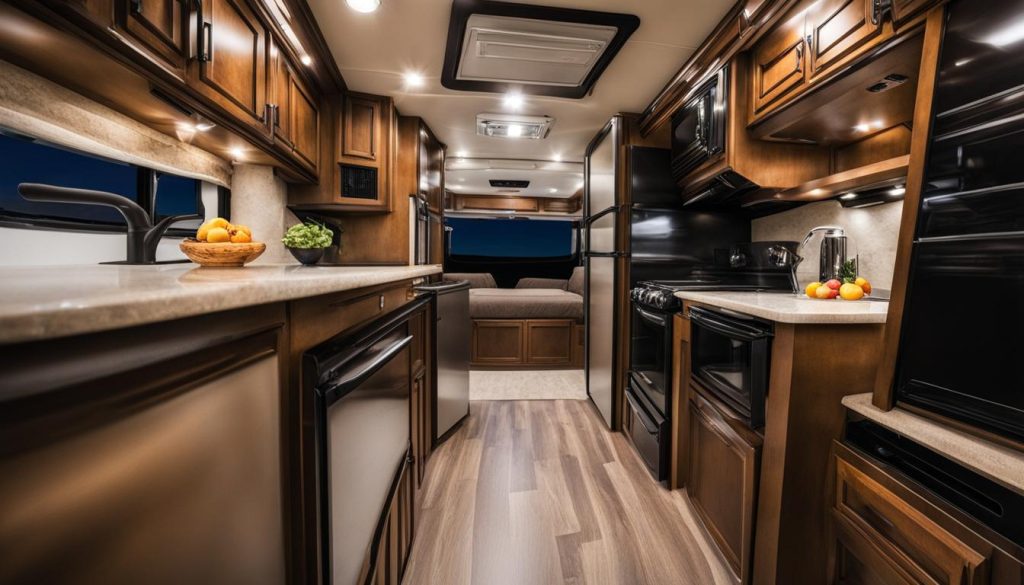
Regular maintenance is key to ensuring the optimal performance of your RV refrigerator. In the next section, we will discuss essential maintenance tips to keep your refrigerator running smoothly and prevent common issues.
Troubleshooting Propane Issues
If your RV refrigerator works on electric power but not on propane, the issue may be related to the gas supply. To troubleshoot and resolve the problem, follow these steps:
- Check that the LP tank is not empty and the valves are open. A lack of propane or closed valves can prevent the refrigerator from operating properly.
- Inspect the thermocouple, which is responsible for detecting the presence of a flame. Over time, the thermocouple can wear out or become faulty, resulting in a failure to ignite the gas. If you notice any signs of damage or if it hasn’t been replaced in a while, it may need to be replaced.
- Clean the burner area thoroughly. Debris or blockages in the burner can prevent the flame from lighting properly, leading to issues with propane operation. Use a soft brush or compressed air to remove any dirt, dust, or obstructions.
If these troubleshooting steps do not resolve the issue with your RV refrigerator’s propane operation, it is advisable to seek professional help. They can diagnose the problem accurately and provide the necessary repairs or replacements to ensure proper functioning.
Remember, it’s important to address propane issues with your RV refrigerator promptly to prevent spoilage of food and ensure comfort during your trips.
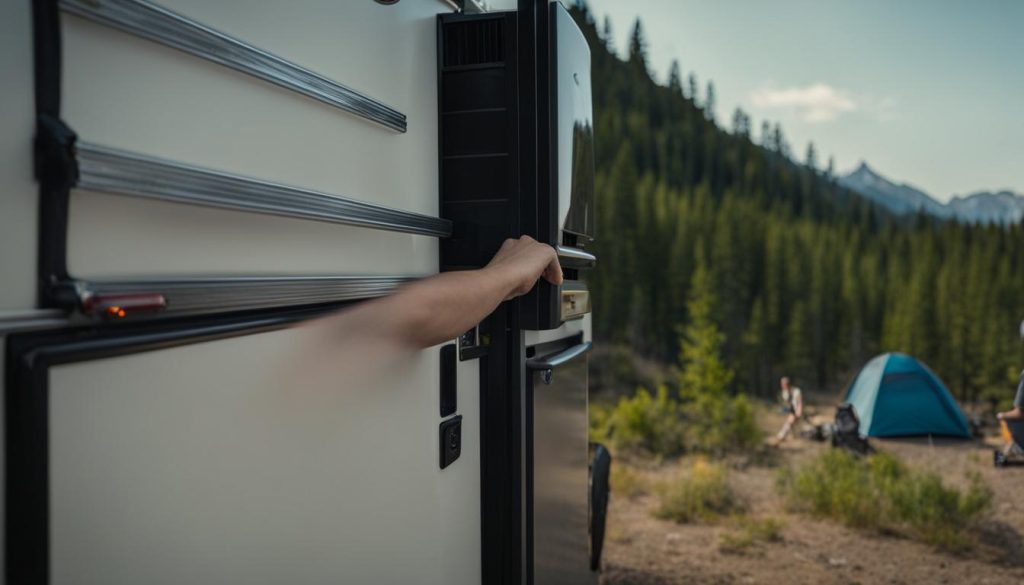
| Issue | Possible Cause | Troubleshooting Steps |
|---|---|---|
| Refrigerator not working on propane | Empty LP tank or closed valves | Check propane supply and ensure valves are open |
| No flame detected | Defective thermocouple | Inspect and replace the thermocouple if necessary |
| Flame not lighting | Debris or blockages in the burner | Clean the burner area to remove any obstructions |
Maintenance Tips for RV Refrigerators
Regular maintenance is crucial to keeping your RV refrigerator in optimal working condition. By following these simple maintenance tips, you can avoid common RV refrigerator problems and extend the lifespan of your unit.
To start, ensure that your RV is level when the refrigerator is running. This helps prevent any potential damage to the cooling unit and ensures proper functioning. Take the time to check the levelness of your RV before each trip or whenever you set up camp.
Keeping the exterior of your RV refrigerator clean is also essential for its performance. Regularly clean the access panel where the cooling unit coils are located. Dust and debris can accumulate here, obstructing airflow and causing the refrigerator to work harder than necessary.
Selecting the correct power source based on your camping conditions is another crucial step in maintaining your RV refrigerator. If you have access to electrical hookups, utilize the 110v AC power option. If you are boondocking or dry camping, propane gas is the preferred choice. Using the right power source ensures efficient operation and prevents unnecessary strain on the refrigerator.
Last but not least, regularly check the door seal for any leaks or gaps. Damaged or faulty door seals can lead to temperature inconsistencies and increased energy consumption. If you notice any issues with the seal, promptly replace it to maintain optimal cooling efficiency.
By following these RV refrigerator maintenance tips, you can troubleshoot common problems and prevent breakdowns, saving yourself time, money, and frustration on repairs. Remember, a well-maintained refrigerator will keep your food fresh and your adventures worry-free!
FAQ
How does an RV refrigerator work?
RV refrigerators operate on 110v AC, propane gas, or 12v DC. Instead of using a compressor and freon, they use a gas absorption method involving a mixture of hydrogen gas, ammonia, water, and sodium chromate.
What are some common issues with RV refrigerators?
Common issues include not cooling properly, not working on gas or electric, and producing a strong ammonia odor.
What should I do if my RV refrigerator does not work on electric power?
First, check the circuit breakers and fuses. Verify the outlet at the back of the refrigerator for voltage and test the electric heating element using a multimeter. If necessary, seek professional assistance for circuit board repairs.
What should I do if my RV refrigerator does not work on propane?
Check that the LP tank is not empty and the valves are open. Inspect the thermocouple and replace it if necessary. Clean the burner area from any debris or blockages. If the problem persists, seek professional help.
How can I maintain my RV refrigerator?
Make sure your RV is level when the refrigerator is running to prevent damage. Keep the exterior clean, including the access panel where the cooling unit coils are located. Use the correct power source for your camping conditions. Regularly check the door seal for leaks or gaps and replace as needed.


